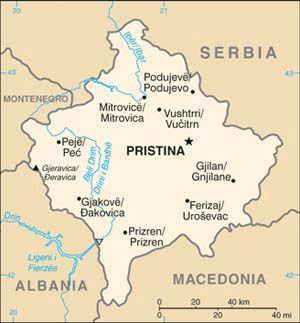Kosovo Institutions Address Status Of War Survivors Of Sexual Abuse
By SETimes
By Safet Kabashaj
The status of sexual violence survivors in Kosovo and Bosnia and Herzegovina (BiH are part of the post-armed conflict challenges in both countries, the Pristina UN women’s office told SETimes.
More than 10,000 women are estimated to have been raped in Kosovo between 1998 and 1999, and more than 20,000 in BiH between 1992 and 1995. However, both countries lack official figures.
Last year, the Kosovo assembly adopted a law on the status and rights of martyrs, invalids, veterans, members of the former Kosovo Liberation Army, civilian victims of war and their families, defining their status and granting them financial support.

Survivors of sexual violence were not included. The UN women’s office, invited activists from BiH to share their experiences this month in an effort to raise awareness, recommends “legal recognition of women survivors of sexual violence and torture during the war, as civilian victims of war, and inclusion under the law.”
The Women’s Caucus of the Kosovo assembly is addressing the issue. Flora Brovina, a caucus member, said that she worries that declaring the status of war sexual victims as a category will be difficult.
“Though they have an enormous need for assistance, only a small number will identify themselves as women that were raped to gain compensation,” Brovina told SETimes.
According to her, it is best for this category of war survivors to work, join an association with others with similar challenges and experiences, and be encouraged to talk about their problems. That way, their post-traumatic syndrome may be healed or at least facilitated.
The Kosovo Rehabilitation Centre for Torture Victims (KSCTV) and Medica Gjakova are two sites sheltering victims of sexual violence in Kosovo.
Sebahate Pacolli Krasniqi, head of the rehabilitation unit at KSCTV, told SETimes that the centre’s offices in Pristina and three other localities in Kosovo are keys for rehabilitation of war survivors.
The center offers psychological and psychiatric consulting, aiming to support the victims of torture and trauma. Many seeking support are victims of sexual violence.
Lejla Mamut, BiH human rights co-ordinator for Track Impunity Always, said the situation in BiH is better than in Kosovo or Croatia, but many issues remain unresolved, and survivors still face a number of challenges.
Cases of sexual violence were transferred from The Hague tribunal to the BiH state court, and then to local courts. “Local courts lack staff, experience, technical and other capacities to work on such cases,” Mamut told SETimes.
In the Federation BiH, the Law on Social Protection, Civilian Victims of War and Families with Children was amended in 2006 and survivors of rape are recognised as a special category, and entitled to monthly payments.
However, not all survivors in the Republika Srpska receive compensation, nor do victims now living abroad.
In BiH, between 900 to 2,000 women who identified themselves as victims of rape are receiving a monthly compensation. BiH activists said that sexual violence victims in Kosovo also be entitled to compensation.
